What's the history of 'outside agitators'? Here's what to know about the label and campus protests
GRAHAM LEE BREWER
Sat, May 11, 2024 a
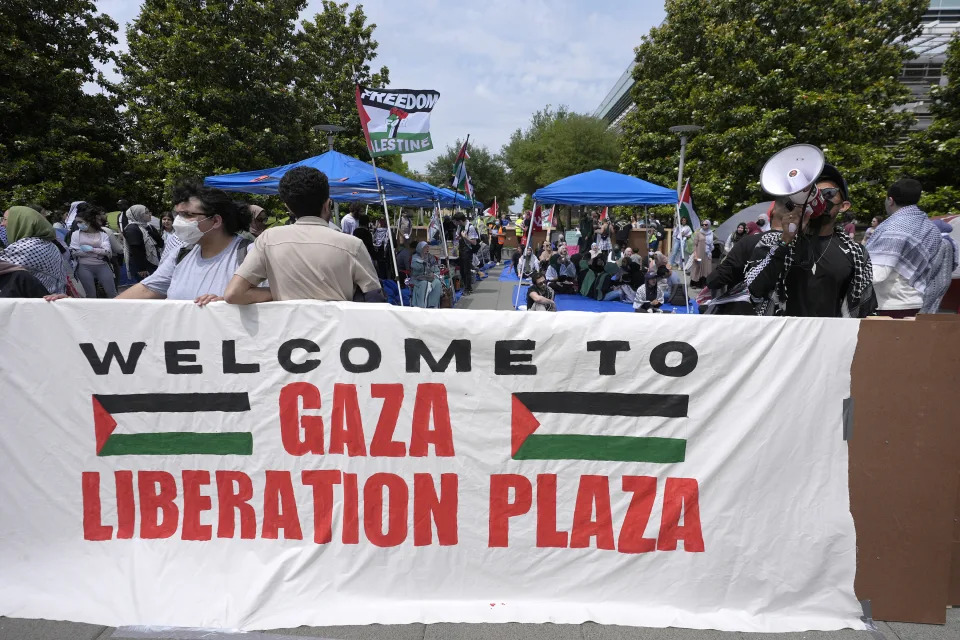
Historically, when students at American universities and colleges protest — from the Civil Rights Movement to Black Lives Matter — there's a common refrain that “outside agitators” are to blame. College administrators and elected officials have often pointed to community members joining protests to dismiss the demands of student protesters.
Experts say it's a convenient way for officials to delegitimize the motivations of some political movements and justify calling in law enforcement to stop direct actions that are largely nonviolent and engaging in constitutionally protected speech.
“This tactic shifts focus away from genuine grievances and portray radical movements as orchestrated by opportunistic outsiders," said Shanelle Matthews, a professor of anthropology and interdisciplinary studies at the City University of New York and a former communications director for the Movement for Black Lives.
Over the last few weeks, students on campuses across the country have built encampments, occupied buildings and led protests to call on colleges and universities to divest their endowments from companies profiting from the Israel-Hamas war. Several college and city leaders have pointed to the threat of outsiders when describing the protests — and some have responded by cancelling or shifting plans for commencement ceremonies.
Here's what to know about the phrase “outside agitators” used during historic student movements.
THE CIVIL RIGHTS MOVEMENT (1960s-1970s)
Protest movements are typically comprised of local community members and organizers from other parts of the state or country that work together toward a common goal. In the 1960s, state and local officials often focused on this hallmark of community organizing and suggested that civil rights protests were organized by people outside of a given community.
In 1960, a group of Black college students took out a full page ad in Atlanta newspapers called “An Appeal for Human Rights” that expressed solidarity with students everywhere protesting for civil rights. Segregationist politician and then-Georgia Gov. Ernest Vandiver suggested it was created by foreigners and called it a calculated attempt “to breed dissatisfaction, discontent, discord and evil."
“It did not sound like it was prepared in any Georgia school or college; nor in fact did it read like it was written even in this country,” he told the press.
The idea that outside agitators were involved in civil rights protests became so common that Martin Luther King Jr. spoke out against the label in his letter from the Birmingham Jail in 1963.
“Injustice anywhere is a threat to justice everywhere,” King wrote. “Never again can we afford to live with the narrow, provincial ‘outside agitator’ idea. Anyone who lives inside the United States can never be considered an outsider anywhere within its bounds.”
Former President Richard Nixon hoped to tie the 1970 shooting deaths of Kent State students by the National Guard to outside agitators, but the FBI was unable to provide such a link. The students had been protesting the Vietnam War.
During the Civil Rights Movement, the label was used as a weapon against community members who spoke up or provided support to protesters and organizers, said Dylan C. Penningroth, an author and historian who teaches law and history at the University of California, Berkeley.
“It delegitimizes internal dissent against the status quo. So anyone who speaks up against the status quo, whatever that is, is by definition an outsider,” he said.
It also ignores the fact that local civil rights organizers often take cues from other protest movements, Penningroth said, and building solidarity with others around the country is often an important part of enacting change.
BLACK LIVES MATTER (2013-present)
Nearly a half-century later, the 2014 killing of Michael Brown by a police officer in Ferguson, Missouri, sparked widespread protests against police brutality.
Again, outside agitators were frequently invoked and blamed for destruction, looting and the burning of buildings.
The same language was used to describe protests in the wake of the 2020 killing of George Floyd by Minneapolis police, which resulted in over 10,000 arrests nationwide.
Minnesota Gov. Tim Walz suggested that 80% of those who participated in the unrest that followed in Minneapolis were from out of state. But an Associated Press analysis found that 41 of the 52 people cited with protest-related arrests had Minnesota driver’s licenses.
PRO-PALESTINIAN PROTESTS (2024)
The number of people arrested in connection with protests on college and university campuses against Israel’s war in Gaza has now topped 2,800. The Associated Press has tallied at least 70 incidents on at 54 schools since the protests began at Columbia on April 18.
Official have used outside agitator rhetoric in a handful of examples nationwide. After dozens of students were arrested in May 4 demonstrations at the University of Virginia, a top law enforcement official suggested outsiders had “bull horns to direct the protesters on how to flank our officers.”
“We’re receiving intelligence that outside agitators are starting to get involved in these campus protests,” Virginia Attorney General Jason Miyares told Fox News on May 6.
In anti-war protests on campuses at Atlanta’s Emory University, Boston’s Northeastern University, and the Massachusetts Institute of Technology in Cambridge, school officials and law enforcement have made inaccurate claims about the presence of non-students.
NYC PRO-PALESTINIAN PROTESTS (2024)
On April 30, New York City police officers in riot gear entered Columbia University’s campus and cleared an encampment, arresting more than 100 people. New York City Mayor Eric Adams has repeatedly cited the presence of “outside agitators” to justify the use of police force.
“There is a movement to radicalize young people and I’m not going to wait until it’s done and all of a sudden acknowledge the existence of it,” Adams said at a May 1 news conference.
Pressed for specifics, though, the mayor and police officials have had little to say. Adams has repeatedly said that he decided police intervention was necessary in Columbia’s demonstrations after learning that the husband of one “agitator” was “arrested for federal terrorism.”
But the woman referenced by the mayor wasn’t on Columbia’s campus that week, isn’t among the protesters who were arrested and has not been accused of any crime.
Nahla Al-Arian told The Associated Press she was visiting the city last month and briefly stopped by the campus to see the protest encampment. She also said Adams was mischaracterizing the facts about her husband, a former computer engineering professor who was charged two decades ago with giving illegal support to the Palestinian Islamic Jihad group in the 1980s and 1990s.
Students involved in the Columbia protests have told The AP it is true that some people not affiliated with the university have been on campus and played an active role in the demonstrations, but they have vehemently denied that those allies were leading or “radicalizing” the students.
“While it's true that people with nefarious intentions crash protests, it's the exception rather than the rule,” Matthews said. “Given that, people should be wary of this narrative.”
____
AP writers R.J. Rico in Atlanta, Steve LeBlanc in Boston, David B. Caruso in New York and Jim Vertuno in Austin contributed.
UK
Experts say it's a convenient way for officials to delegitimize the motivations of some political movements and justify calling in law enforcement to stop direct actions that are largely nonviolent and engaging in constitutionally protected speech.
“This tactic shifts focus away from genuine grievances and portray radical movements as orchestrated by opportunistic outsiders," said Shanelle Matthews, a professor of anthropology and interdisciplinary studies at the City University of New York and a former communications director for the Movement for Black Lives.
Over the last few weeks, students on campuses across the country have built encampments, occupied buildings and led protests to call on colleges and universities to divest their endowments from companies profiting from the Israel-Hamas war. Several college and city leaders have pointed to the threat of outsiders when describing the protests — and some have responded by cancelling or shifting plans for commencement ceremonies.
Here's what to know about the phrase “outside agitators” used during historic student movements.
THE CIVIL RIGHTS MOVEMENT (1960s-1970s)
Protest movements are typically comprised of local community members and organizers from other parts of the state or country that work together toward a common goal. In the 1960s, state and local officials often focused on this hallmark of community organizing and suggested that civil rights protests were organized by people outside of a given community.
In 1960, a group of Black college students took out a full page ad in Atlanta newspapers called “An Appeal for Human Rights” that expressed solidarity with students everywhere protesting for civil rights. Segregationist politician and then-Georgia Gov. Ernest Vandiver suggested it was created by foreigners and called it a calculated attempt “to breed dissatisfaction, discontent, discord and evil."
“It did not sound like it was prepared in any Georgia school or college; nor in fact did it read like it was written even in this country,” he told the press.
The idea that outside agitators were involved in civil rights protests became so common that Martin Luther King Jr. spoke out against the label in his letter from the Birmingham Jail in 1963.
“Injustice anywhere is a threat to justice everywhere,” King wrote. “Never again can we afford to live with the narrow, provincial ‘outside agitator’ idea. Anyone who lives inside the United States can never be considered an outsider anywhere within its bounds.”
Former President Richard Nixon hoped to tie the 1970 shooting deaths of Kent State students by the National Guard to outside agitators, but the FBI was unable to provide such a link. The students had been protesting the Vietnam War.
During the Civil Rights Movement, the label was used as a weapon against community members who spoke up or provided support to protesters and organizers, said Dylan C. Penningroth, an author and historian who teaches law and history at the University of California, Berkeley.
“It delegitimizes internal dissent against the status quo. So anyone who speaks up against the status quo, whatever that is, is by definition an outsider,” he said.
It also ignores the fact that local civil rights organizers often take cues from other protest movements, Penningroth said, and building solidarity with others around the country is often an important part of enacting change.
BLACK LIVES MATTER (2013-present)
Nearly a half-century later, the 2014 killing of Michael Brown by a police officer in Ferguson, Missouri, sparked widespread protests against police brutality.
Again, outside agitators were frequently invoked and blamed for destruction, looting and the burning of buildings.
The same language was used to describe protests in the wake of the 2020 killing of George Floyd by Minneapolis police, which resulted in over 10,000 arrests nationwide.
Minnesota Gov. Tim Walz suggested that 80% of those who participated in the unrest that followed in Minneapolis were from out of state. But an Associated Press analysis found that 41 of the 52 people cited with protest-related arrests had Minnesota driver’s licenses.
PRO-PALESTINIAN PROTESTS (2024)
The number of people arrested in connection with protests on college and university campuses against Israel’s war in Gaza has now topped 2,800. The Associated Press has tallied at least 70 incidents on at 54 schools since the protests began at Columbia on April 18.
Official have used outside agitator rhetoric in a handful of examples nationwide. After dozens of students were arrested in May 4 demonstrations at the University of Virginia, a top law enforcement official suggested outsiders had “bull horns to direct the protesters on how to flank our officers.”
“We’re receiving intelligence that outside agitators are starting to get involved in these campus protests,” Virginia Attorney General Jason Miyares told Fox News on May 6.
In anti-war protests on campuses at Atlanta’s Emory University, Boston’s Northeastern University, and the Massachusetts Institute of Technology in Cambridge, school officials and law enforcement have made inaccurate claims about the presence of non-students.
NYC PRO-PALESTINIAN PROTESTS (2024)
On April 30, New York City police officers in riot gear entered Columbia University’s campus and cleared an encampment, arresting more than 100 people. New York City Mayor Eric Adams has repeatedly cited the presence of “outside agitators” to justify the use of police force.
“There is a movement to radicalize young people and I’m not going to wait until it’s done and all of a sudden acknowledge the existence of it,” Adams said at a May 1 news conference.
Pressed for specifics, though, the mayor and police officials have had little to say. Adams has repeatedly said that he decided police intervention was necessary in Columbia’s demonstrations after learning that the husband of one “agitator” was “arrested for federal terrorism.”
But the woman referenced by the mayor wasn’t on Columbia’s campus that week, isn’t among the protesters who were arrested and has not been accused of any crime.
Nahla Al-Arian told The Associated Press she was visiting the city last month and briefly stopped by the campus to see the protest encampment. She also said Adams was mischaracterizing the facts about her husband, a former computer engineering professor who was charged two decades ago with giving illegal support to the Palestinian Islamic Jihad group in the 1980s and 1990s.
Students involved in the Columbia protests have told The AP it is true that some people not affiliated with the university have been on campus and played an active role in the demonstrations, but they have vehemently denied that those allies were leading or “radicalizing” the students.
“While it's true that people with nefarious intentions crash protests, it's the exception rather than the rule,” Matthews said. “Given that, people should be wary of this narrative.”
____
AP writers R.J. Rico in Atlanta, Steve LeBlanc in Boston, David B. Caruso in New York and Jim Vertuno in Austin contributed.
UK
Vice-chancellors warn Rishi Sunak over non-student ‘agitators’
Nick Gutteridge
Thu, May 9, 2024
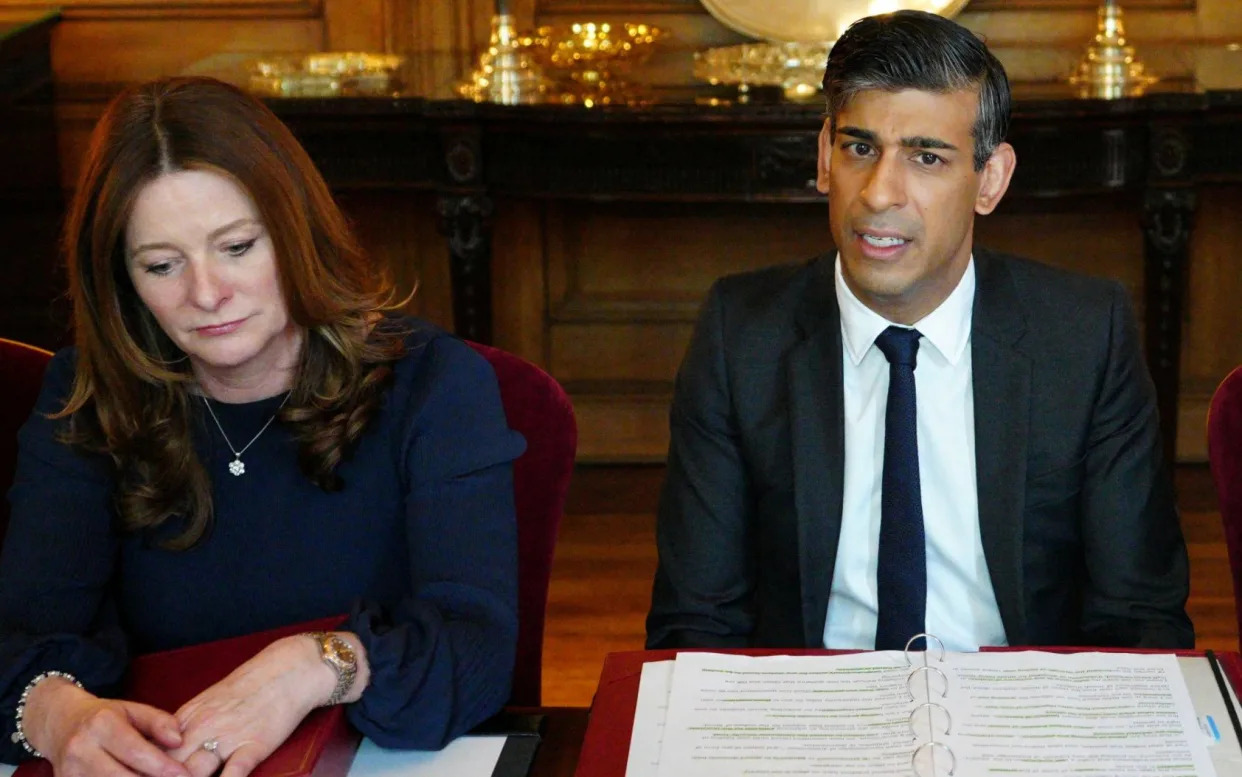
Gillian Keegan, Education Secretary, and Rishi Sunak meet vice-chancellors in Downing Street - Carl Court/Pool via REUTERS
Leading universities have raised concerns that non-student “agitators” are infiltrating on-campus protests over Gaza to “stir division”.
Vice-chancellors sounded the alarm over the presence of extremist groups at the demonstrations in a meeting with Rishi Sunak.
They were summoned to Downing Street by the Prime Minister on Thursday for talks on the spread of pro-Palestinian encampments. The meeting came after the University of Cambridge rejected calls to clear a pro-Gaza camp on the lawn outside King’s College.
The US-style protests, which have seen students occupy the grounds of universities across the country, have been raging for five days. They have sparked concerns about rising anti-semitism and the intimidation of Jewish students, though the organisers insist their aims are peaceful.
At the gathering Mr Sunak warned universities that they must “root out” protesters on their grounds who “incite violence or glorify terrorism”.
Vice-chancellors in turn voiced concerns the demonstrations are being infiltrated by non-students to whip up hatred against Jewish people.
“Concerns were raised around non-student ‘agitators’ infiltrating on-campus protests in order to stir division,” Downing Street said after the talks.
The heads of 17 top universities including Oxford and Cambridge, which have both been gripped by controversial protests, were at the meeting.
Representatives from the Union of Jewish Students and the Community Security Trust, which monitors incidents of anti-semitism, were also present.
But the scandal-hit National Union of Students was not invited after ministers suspended cooperation in 2022 over allegations of anti-semitism.
Mr Sunak told the vice-chancellors they must take “personal responsibility for protecting Jewish students” and adopt a “zero tolerance” approach to anti-Semitism.
He made the remarks after earlier telling his Cabinet that there had been “an unacceptable rise in anti-Semitism on our university campuses” in recent times.
Tom Tugendhat, the security minister, warned university leaders that “freedom of speech didn’t extend to the right to abuse or intimidate”.
He added that he was “personally committed” to supporting institutions that needed help managing the protests and rooting out extremists.
Cambridge rebuke
His remarks appeared to be a rebuke to Cambridge, which justified its decision not to clear the King’s College camp on free-speech grounds.
Mr Sunak also urged vice-chancellors to discipline student protesters who crossed the line and said they should call in the police if necessary.
“He was clear they should take disciplinary action if students are found to have been guilty of anti-Semitism or glorification of terrorism or any form of intimidation or violence,” the Prime Minister’s spokesman said.
“The police already have powers such as if people are engaging in illegal activity or acting on behalf of a proscribed group, they have legal powers to take action.
“Universities themselves would want to identify if there are non-student agitators engaging on university premises.”
He added that the demonstrations “must happen in a way that does not intimidate Jewish students and does not incite violence or glorify terrorism, and clearly universities should be held to account for dealing with these protests appropriately”.

The encampment at Newcastle University as protesters enjoy a morning lie-in - Raoul Dixon / NNP
Vice-chancellors told Mr Sunak they were ready to use eviction orders to clear out protesters where they were in clear breach of university rules.
The meeting came as Prof Dame Sally Mapstone, the head of Universities UK, said institutions “may need to take action” if the protests interfere with campus life.
She said there should not be an “automatic” presumption that the camps should be cleared and that decisions should be made based on the behaviour of the protesters.
“Where there is clear evidence that encampments are interfering with good university business and with the rights of students and staff to go about their business – to take exams, to do their degree shows, to graduate - then universities may need to take action,” she said.
Lisa Fithian
Meanwhile, the mayor of New York Eric Adams warned that “outside agitators” were infiltrating the pro-Palestinian demonstrations at Columbia University and released a video of “protest consultant” Lisa Fithian.
She has been arrested between 80 and 100 times having supported everything from anti-Iraq War demos to Occupy Wall Street.
The president of Columbia University said the protests were made worse by “external forces” and “those from outside our community”.
Baroness Shafik, a British-American peer and former civil servant, called for universities to “heal and unify” after weeks of protests and encampments that have often ended in clashes with the police.
She said the protests had been exacerbated by people from outside the university that had whipped up hate speech and anti-Semitism and held separate demonstrations outside Columbia’s gates in New York.
“It would be a mistake to think that a small group of students with connections to the Arab world drove these protests,” she wrote in an article for the Financial Times.
“What I saw was a broad representation of young people of every ethnic and religious background — passionate, intelligent and committed.
“Unfortunately, the actions and anti-Semitic comments of some — especially among those from outside our community — stirred fear and discomfort."
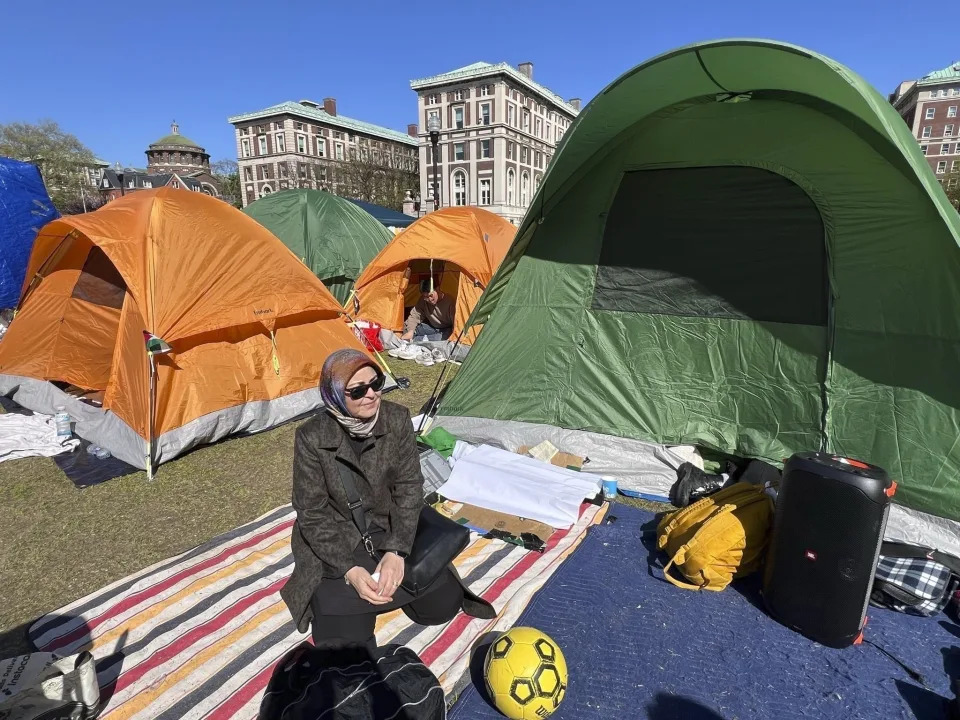
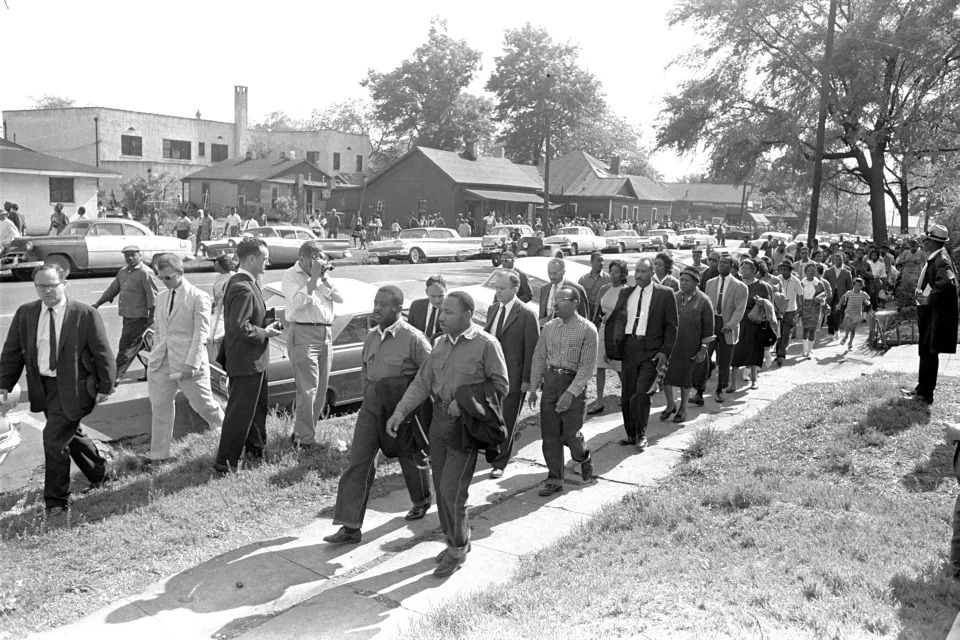
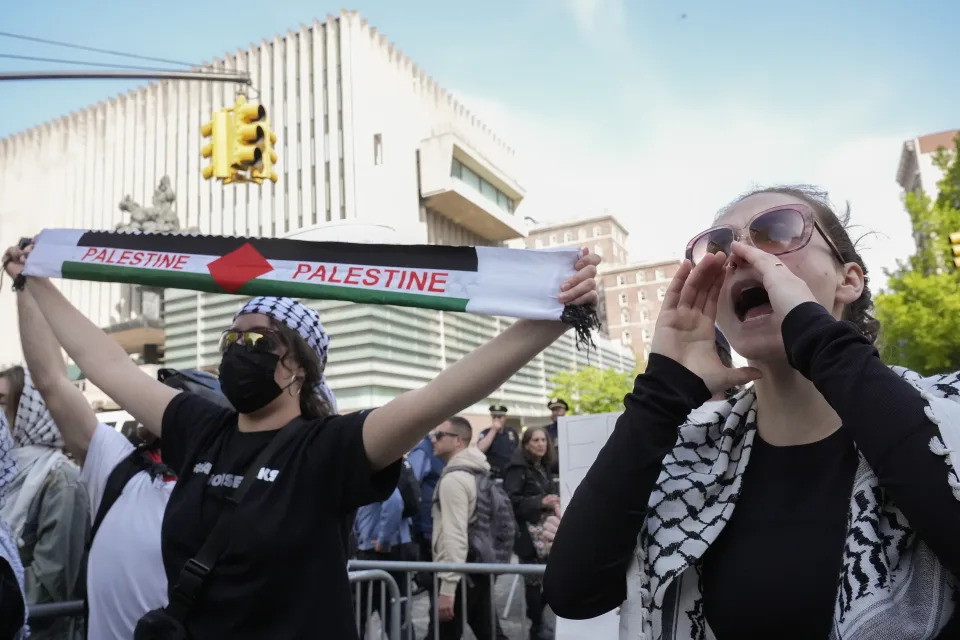
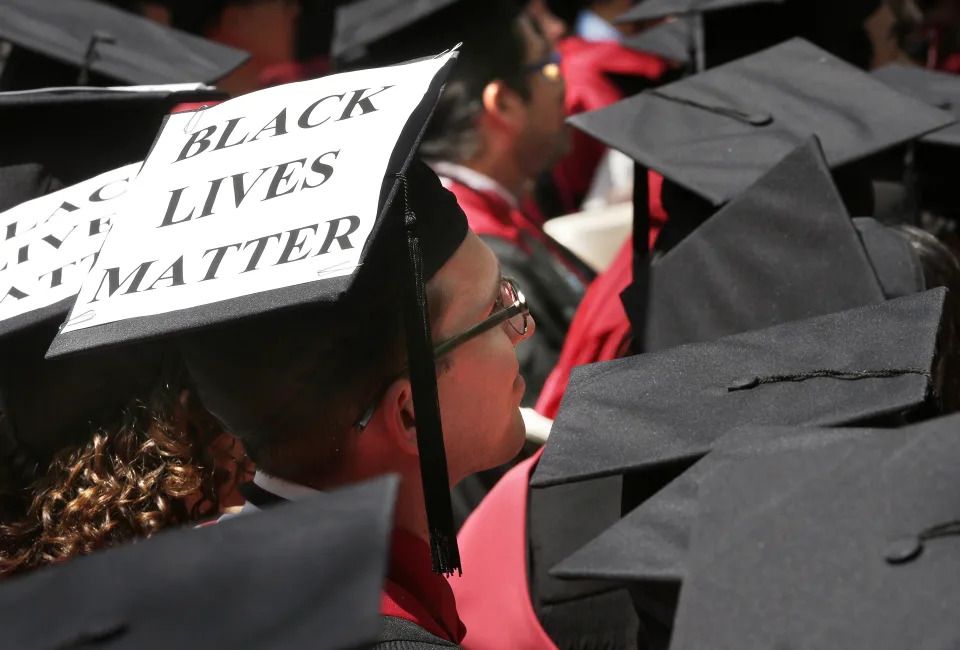
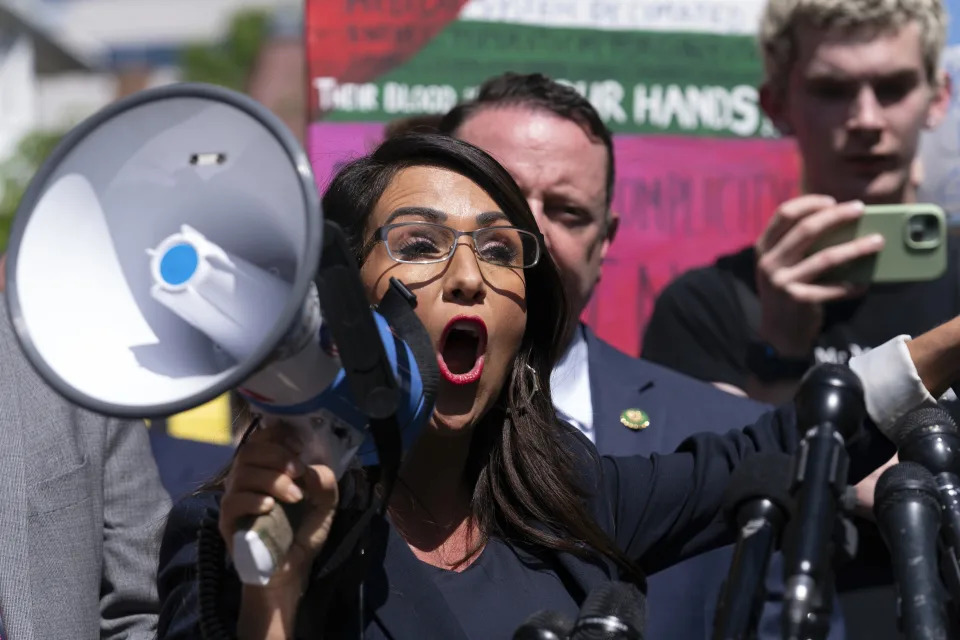
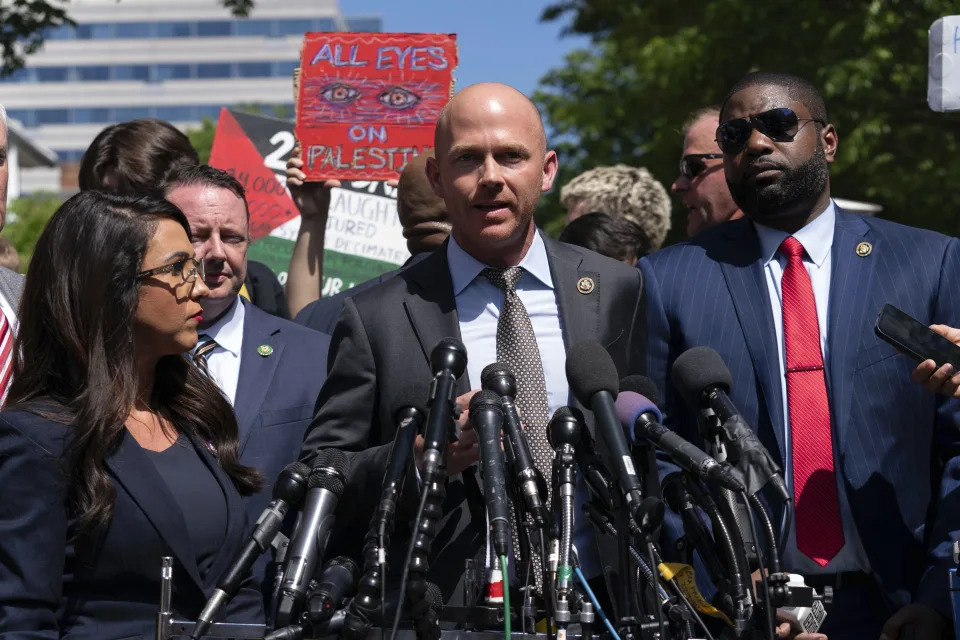
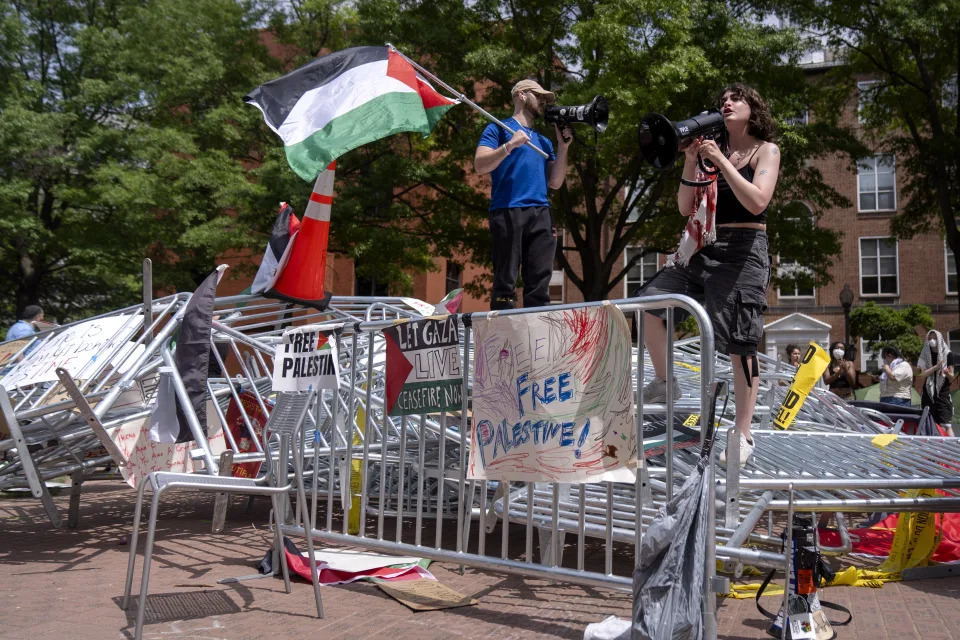

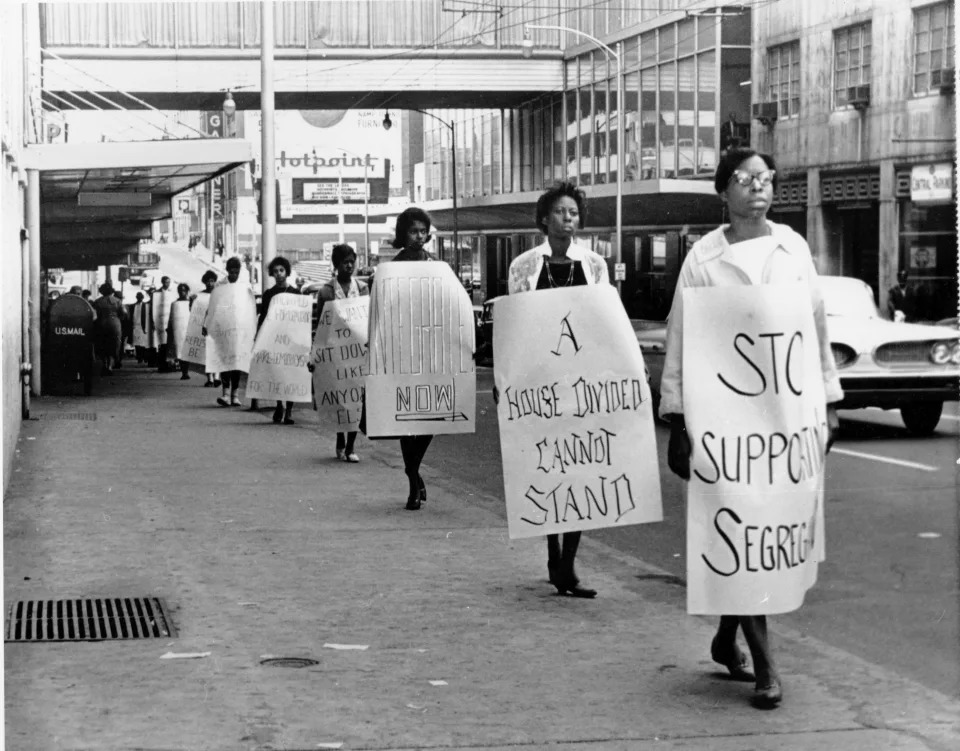
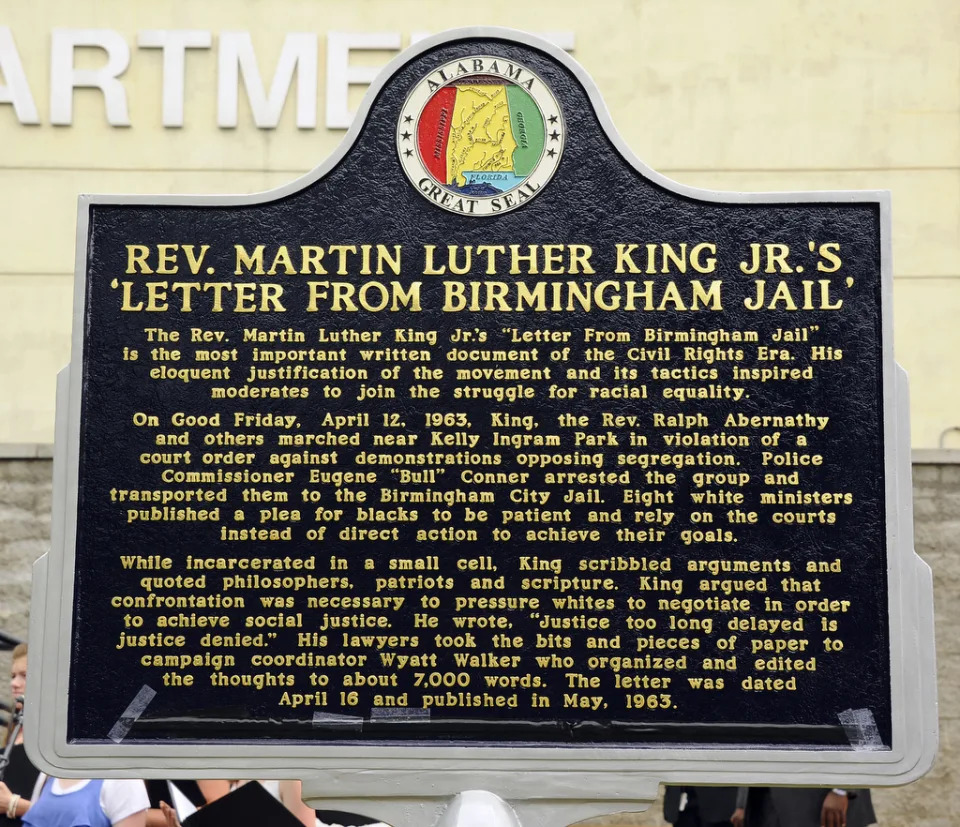
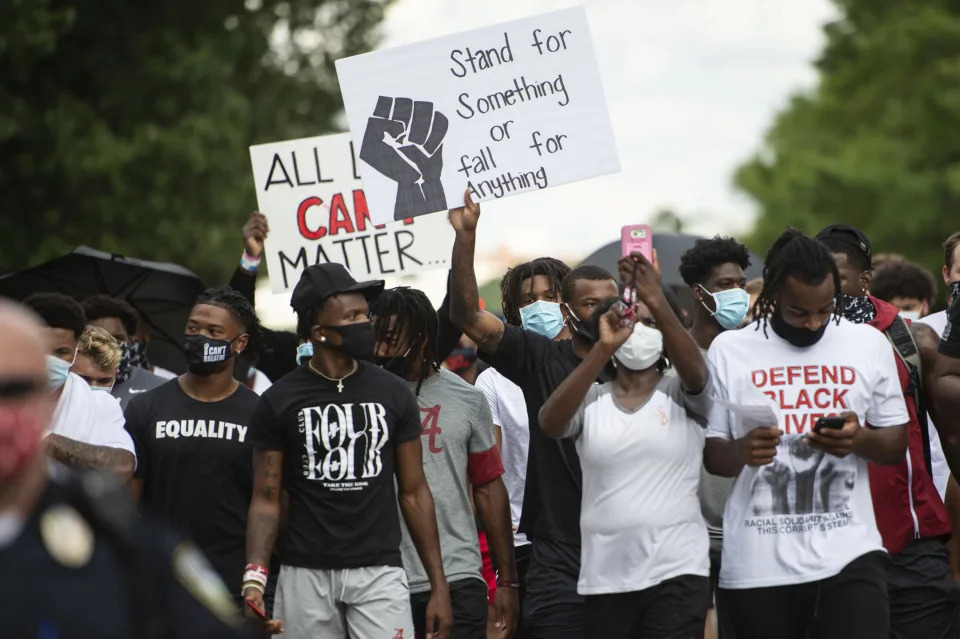
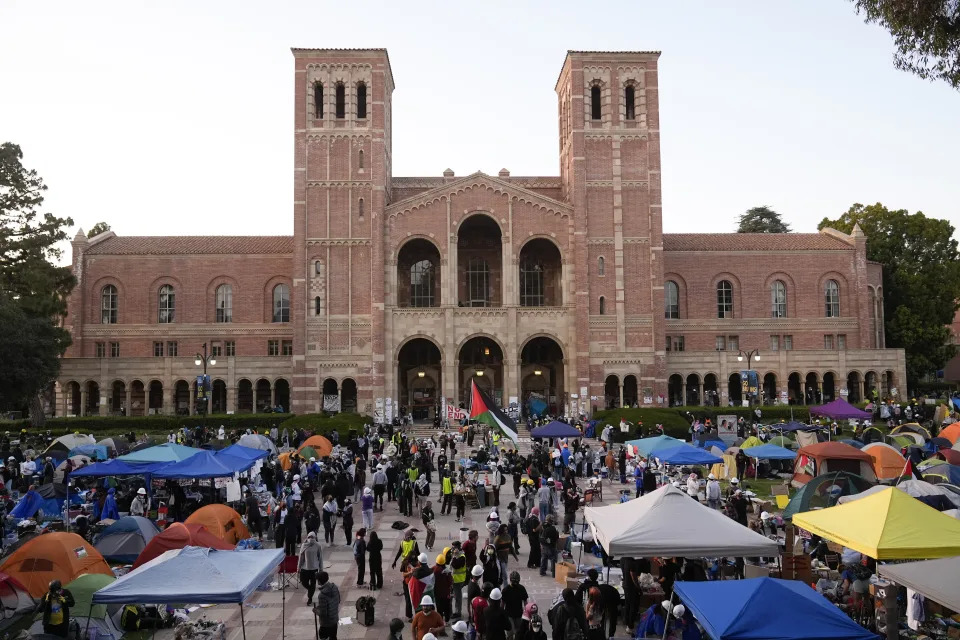
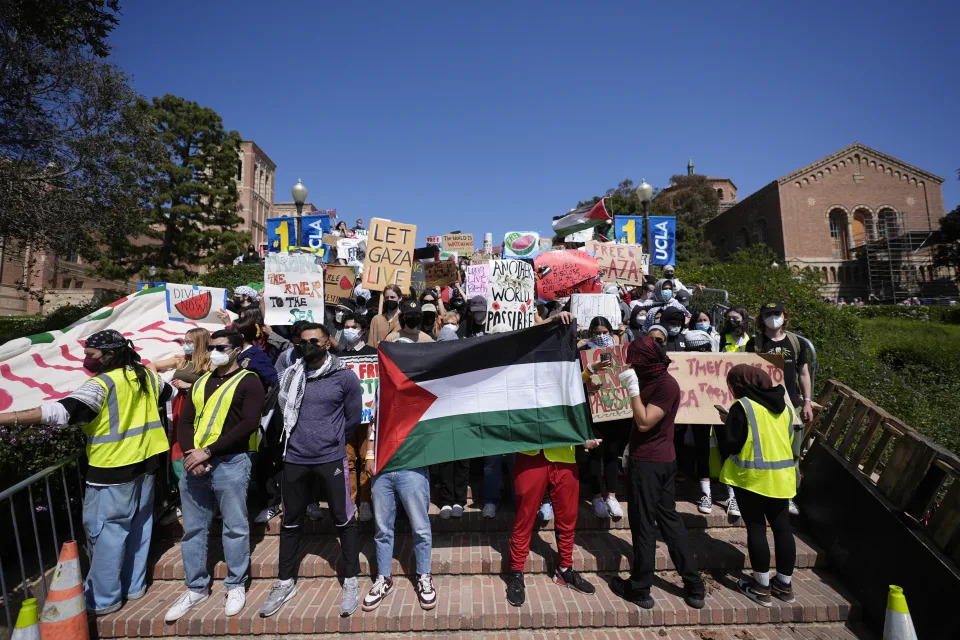
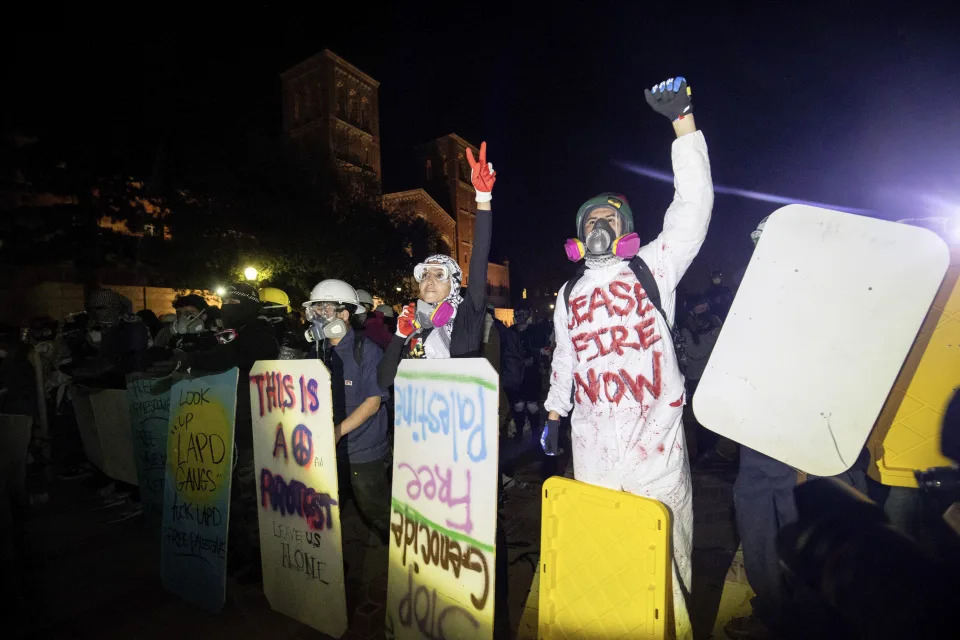
Demonstrators line up behind makeshift shields as police prepare to advance on them on the UCLA campus, Thursday, May 2, 2024, in Los Angeles.
AP Photo/Ethan Swope,
No comments:
Post a Comment